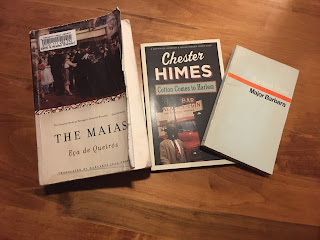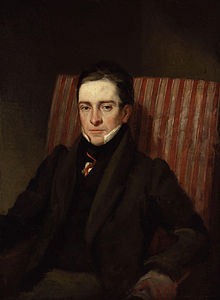"She would live for it, work for it, die for it; but she was going to have it; time after time, height after height. She could hear the crash of the orchestra again, and she rose on the brasses. She would have it, what the trumpets were singing! She would have it, have it--it!"
 |
| Jules Breton's Song of the Lark |
Thea Kronborg, the heroine of Willa Cather's novel
The Song of the Lark, is in Chicago and has just heard an orchestral program beginning with Dvorak's New World Symphony and concluding with music from Wagner's Ring Cycle.
And well, what then? She gets it.
Thea grows up in a small town in rural Colorado in the late 1800s. The big city is Denver--not that big at the time--and the bigger is Chicago. The family background is Swedish. Her father is a minister, rival to the Baptists across town, and she's in the middle of a mess of children. Her parents are good people and are good with her, but she needs to get out, to get to the big city, and even they recognize it. She takes piano lessons from the washed-up Wunsch, a drunkard, but once a solid German musician, who knows she has a gift; the town doctor, Howard Archie, saves her from pneumonia; Ray Kennedy, a brakeman on the railroad, plans to marry her when she gets older; the Mexican community in town--Spanish Johnny, Mrs. Tellamantez--loves to hear her sing.
Still the challenges are hard: she's a girl, in the 1800s, lower middle class at best, born in the back of beyond, 'hating a world that let her grow up so ignorant.' If she didn't have her gift--of a voice--even her intelligence, her solid grounding in music, wouldn't have been enough. And if she didn't have people looking out for her--Dr. Archie, Ray Kennedy, Wunsch, her parents--she wouldn't have made it either, she would have died on the way, either literally or figuratively. But she does, and she does.
So: it's the story of a girl becoming an artist, a Künstlerroman. (Or should it be Künstlerinroman?) What's the formula to success? (In case you wanted to know.) Early training--though her Hungarian piano teacher in Chicago tells her she didn't start the piano early enough to become a great concert pianist; support from those around her; luck; talent, naturally. Hard work, of course. Thea's considered a bit of a grind by most everyone around her:
"A growing girl needs lots of sleep, Ray providently remarked.
Thea moved restlessly on the buggy cushions. "They need other things more," she muttered.
But she also has to be strong. Thea gets various things from the men in her childhood: her father is learned, the town doctor looks after her, her music-teacher, but from her mother she gets her 'constitution,' and that's a crucial ingredient. In Mrs. Kronborg's case, her strong constitution means that she can bear seven children, raise them, and never be sick; it plays out differently in Thea's case, but she, too, has incredible stamina.
It seems Willa Cather regretted the title. Lark-song ended up suggesting twittering small birds to most, but Cather didn't mean that: she was thinking of the painting by Breton. There's a solidity to the farm-girl in the painting and that was what Cather wanted to convey.
The last element to come to Thea was a certain self-knowledge. She goes to Panther Canyon in Arizona and lives in an Anasazi cliff-dwelling until she achieves the necessary confidence and self-awareness. Panther Canyon is
Walnut Canyon (near Flagstaff) in disguise:

And so she becomes not Thea, but Kronborg, a major opera singer.
I went through a bit of a Willa Cather phase twenty years ago or so, and I read the novel then. It's a great novel, and I was glad to reread it. At the time, though, I figured it was basically autobiographical, with a change of art from writing to opera for dramatic purposes. (Also the love object changed from a Frederica to a Fred because Cather would have felt she had to.) And that's not entirely wrong--there is a lot of autobiography in the book. But what I didn't know, until I read Alex Ross'
Wagnerism earlier this year, is that's not all there is. Quite a lot of Thea Kronborg is drawn from the actual Swedish-American opera star
Olive Fremstad. Cather wrote a fair amount of journalism, especially early in her career, reviewed several of Fremstad's performances, and later wrote an extended profile of Fremstad. The two became friends. Also Alex Ross, who would know--he's the music writer for the New Yorker--thinks that Willa Cather actually knows quite a bit about opera. I'm sure that all went past me the first time--and kind of did again this time, though I tried to think about it more--because I don't really know anything about opera.
Anyway, a great novel, and I'm glad I put it on my Classics Club
spin list!










